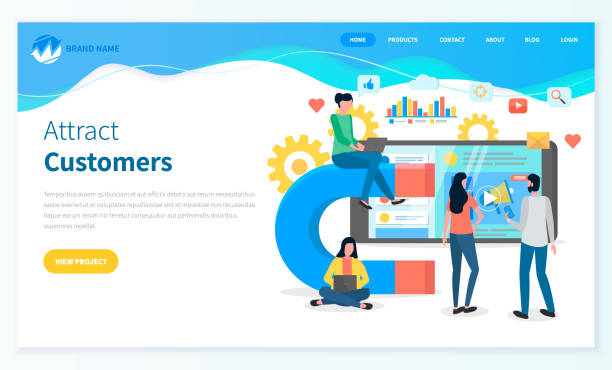Concept and Importance of Off-Page SEO in Website Optimization
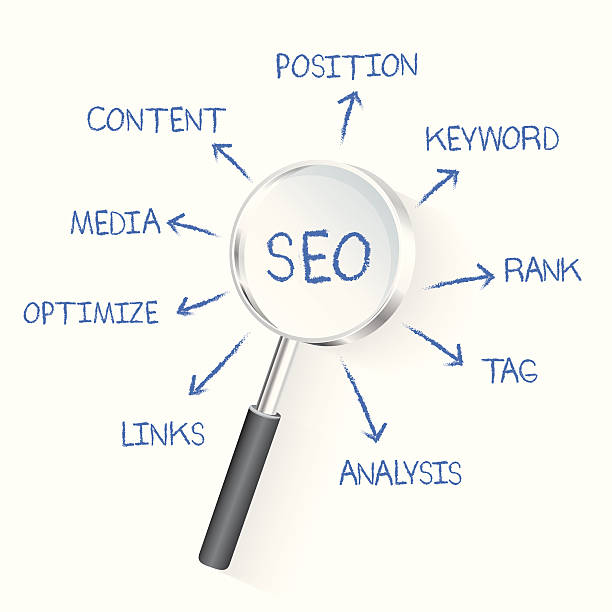
Off-page SEO or Off-Page SEO, is a broad set of activities and techniques performed outside your website’s environment, with the main goal of increasing your domain’s credibility, authority, and position in search engine results.
These activities are primarily focused on #link_building, i.e., receiving links from other websites to your site, but their scope extends beyond just links and includes things like signals received from social media networks, brand mentions without direct links, and activity in reputable forums and directories.
Unlike on-page SEO, which deals with optimizing elements within your website (such as content, URL structure, meta tags), #off_page_seo emphasizes increasing the popularity and authority of the site from the perspective of search engines.
The importance of this part of SEO lies in the fact that search engines like Google identify websites that receive high-quality links from credible and relevant sources as more trustworthy and valuable resources for users.
In fact, every high-quality link to your site acts like a vote of confidence that tells Google your content is valuable and authoritative.
For this reason, a strong and targeted strategy in Off-page SEO can make a significant difference in your #site_ranking in search engine results pages (SERP) and help you surpass your competitors.
Without a strong foundation in Off-page SEO, even with the best on-page SEO, your website may not be able to achieve the highest rankings, as Google looks for a combination of great content and strong external authority.
Understanding this fundamental concept is essential for anyone looking to optimize their online presence.
This part of SEO shows Google that your website is not only technically and content-wise optimized but also enjoys credibility and popularity in the online community, which carries significant weight in ranking algorithms.
The impact of Off-page SEO is such that it can even compensate for minor weaknesses in on-page SEO, although a comprehensive approach is always recommended.
This strategy helps you to be recognized as an authority in your field and attract more targeted organic traffic to your site, ultimately leading to increased conversion rates and profitability.
Therefore, investing time and resources in Off-page SEO is a vital step for long-term success in the digital space.
Are you losing business opportunities because of an outdated website? With Rasawab, solve the problem of not attracting potential customers through your website forever!
✅ Attract more high-quality leads
✅ Increase brand credibility in the eyes of customers
⚡ Get free consultation for corporate website design
Key Components of Off-Page SEO and Their Role in Your Strategy
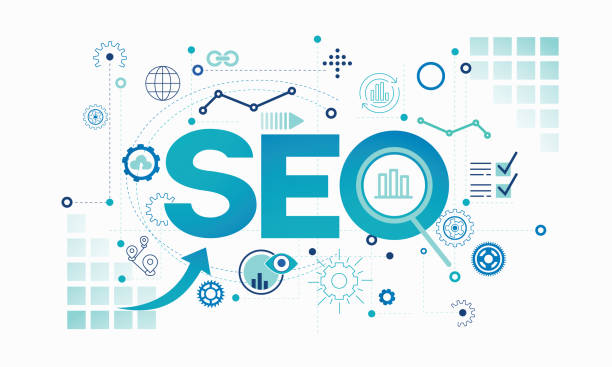
Off-page SEO consists of several vital components, each playing an important role in the overall success of your strategy and requiring careful management.
The most important and influential component is undoubtedly #backlinks or Inbound Links.
Backlinks refer to links from other websites pointing to your site.
These links act as votes of confidence or recommendations from Google’s perspective; the higher the number and especially the quality of inbound links to your site, the more credible and trustworthy search engines consider it, increasing its chances of ranking higher.
The quality of the linking source (such as its domain authority, its topical relevance to your site, and its organic traffic), and also the anchor text used, are all important factors in the value of a backlink. Links that come from spammy, irrelevant, or low-authority websites are not only unhelpful but can also harm your ranking and even lead to penalties by Google, as Google seeks natural and valuable links, not manipulated ones.
Another component is #social_signals.
Although Google has repeatedly emphasized that social media signals like likes and shares are not directly incorporated as ranking factors in its algorithms, an active and successful presence on social media can indirectly impact Off-page SEO.
Engaging and shareable content on platforms like Twitter, Instagram, or LinkedIn can drive traffic to your site, increase brand awareness, and ultimately lead to receiving natural links, as popular content gets more visibility and is more likely to be linked to.
Finally, #brand_credibility and Brand Mentions are also important components.
When your brand name is mentioned without a direct link in articles, blogs, forums, or online discussions, Google also considers these as signs of popularity, reputation, and authority.
The more your brand name is mentioned and in more reputable sources, the more your #online_reputation increases and can positively impact Google’s perception of your site’s overall credibility and thus strengthen Off-page SEO. A clever combination of these components makes your Off-page SEO strategy stronger and more sustainable and helps your site stand out in the competitive online space.
Link Building (Backlinks) The Backbone of Off-Page SEO and Its Specialized Methods

#Link_building, without a doubt, is the beating heart and most important part of Off-page SEO.
Proper understanding and implementation of an effective strategy for #quality_backlinks can elevate your site to the top of search results and establish a powerful online presence for you.
Backlinks come in various types, including textual links within articles, image links, links through user comments (with extreme caution and only if they add value to the discussion) and links from web directories.
What is fundamentally important is the quality and credibility of the linking source.
A link from a high-authority website, relevant to your field of work, and with high organic traffic, is dozens of times more valuable than several links from weak, irrelevant, or spammy sites. Google constantly updates its algorithms to identify and penalize manipulated, artificial, or low-quality links (known as black hat links).
Therefore, focusing on building and acquiring natural, valuable, and relevant links is crucial.
There are numerous methods for link building, each with its own advantages and challenges.
Among these methods, we can mention producing exceptionally valuable and unique content that naturally attracts links (Link Bait).
This content can include original research, statistical data, interactive infographics, or comprehensive guides that other websites reference due to their value.
Guest posting on other websites that have high authority and your target audience is also an effective method, provided that the content provided is truly useful and not solely for link-building purposes.
The broken link building strategy, where you identify broken links on other sites and propose your content as a replacement, as well as active participation in reputable industry forums and directories (with extreme caution to avoid spamming), are other methods.
It is important to have diversity in your backlink profile and not rely on just one method. Analyzing competitors and their backlink profiles using professional tools like Ahrefs or SEMrush can also provide good ideas for your #backlink_strategy and reveal their strengths and weaknesses.
This specialized and comprehensive approach to link building ensures that your Off-page SEO efforts will be sustainable and effective and will increase your site’s credibility in the long run.
| Type of Link Building | Description | Impact on Off-Page SEO |
|---|---|---|
| Natural (Editorial Links) | Websites link naturally due to the high value and uniqueness of your content (e.g., a case study or an exclusive report), voluntarily and without direct request. This type of link is ideal and has the highest value. |
Very High and Sustainable |
| Guest Posting | Writing high-quality and valuable articles for other websites in your field, with one or more links to your site in the content or author’s biography. The key to success is choosing relevant and reputable sites. |
High (conditional on host site quality and credibility, and content naturalness) |
| Broken Link Building | Finding broken and inactive links on reputable sites and offering your own content (which is relevant and high-quality) as a replacement for that broken link to the webmaster. This is a win-win method. |
Medium to High (requires skill in identification and outreach) |
| Directory and Forums (with caution) | Submitting the site to reputable web directories and active participation in relevant specialized forums and placing links in your profile or signature. Spamming must be avoided, and only highly reputable directories should be chosen. |
Low to Medium (depends on directory/forum credibility and rules, and naturalness of activity) |
| Skyscraper Technique | Finding the best existing content on a topic, producing much more complete, updated, and higher-quality content than that, and then requesting links from websites that linked to the older content. | Very High (requires exceptional content production and effective outreach) |
Social Signals and Brand Mentions in Off-Page SEO: Beyond Links

Alongside backlinks, which are the most important factor in Off-page SEO, social signals and Brand Mentions play a complementary and sometimes vital role in strengthening your online credibility. Although Google has repeatedly emphasized that social media signals like likes and shares are not directly incorporated as ranking factors in its algorithms, an active and successful presence on #social_networks can powerfully and indirectly help improve your SEO.
Engaging, informative, and shareable content on platforms like YouTube, Facebook, Instagram, and LinkedIn can drive significant traffic to your site.
This increased traffic can, in turn, boost your brand awareness and ultimately lead to naturally acquiring high-quality links from bloggers, journalists, and other relevant industry players.
For example, a successful social media campaign that leads to a specific piece of content going viral can attract the attention of news websites and influencers, resulting in media coverage and valuable links to your site.
Consistent activity on these platforms not only helps increase your brand’s visibility but also provides new opportunities to interact with your audience and identify their needs.
Furthermore, the concept of #brand_mention is highly significant.
When your brand or company name is mentioned in articles, blogs, podcasts, online discussions, or even in print media without a direct link, these are called “unlinked brand mentions” or “Brand Mentions.”
Search engines have become increasingly intelligent and can recognize these mentions, considering them as indicators of brand popularity, reputation, and authority.
This means that if a reputable source, such as an online newspaper or a specialized blog, mentions your brand name even without linking, Google considers it a positive sign.
The more your brand name is mentioned and in more reputable sources, the more your #online_reputation increases and can positively impact Google’s perception of your site’s overall authority and thus strengthen Off-page SEO. Therefore, a comprehensive Off-page SEO strategy should not be limited to link building but should also include targeted social media activities to increase traffic and brand awareness, as well as efforts to increase brand mentions in the online space to cover all aspects of your site’s credibility and achieve a strong online reputation.
Are you concerned about your e-commerce site’s low conversion rate and not achieving your desired sales?
Rasawab is your specialized solution for a successful e-commerce website.
✅ Significant increase in conversion rates and sales
✅ Professional and user-friendly design to satisfy customers
⚡ Ready for an online sales revolution? Get a free consultation!
Advanced Link Building Strategies for Off-Page SEO and Their Benefits
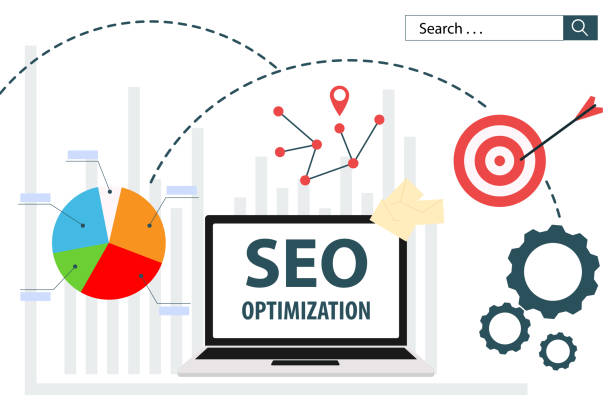
After getting acquainted with the basics, it’s time for more advanced and creative strategies in Off-page SEO and #link_building that can significantly impact your site’s ranking and credibility.
One of the most effective and well-known methods is the Skyscraper Technique, introduced by Brian Dean from Backlinko.
In this method, you first find the most popular and best existing content in your field (usually content that has received many links).
Then, you produce content that is much better, more comprehensive, more up-to-date, and richer than it (literally building a content skyscraper, for example, by adding new statistics, better infographics, or deeper coverage of sub-topics).
After producing this superior content, you contact websites that have linked to the older, “weaker” content and suggest your new and superior content as a more valuable and updated alternative.
This method is very effective because you give websites a compelling reason to link and help them have higher-quality links in their content and benefit from updated content.
Another strategy that is playing an increasing role in Off-page SEO is #Digital_PR.
This approach involves creating events, conducting original and unique research (e.g., a large industry survey), publishing industry statistics and reports, designing specific infographics and shareable content so that media, news websites, and reputable bloggers naturally cover it and link to it.
The goal is to create “news” and “events” that are newsworthy and automatically attract attention and generate organic links.
Finding #broken_link opportunities is also a smart and cost-effective method for link building; using tools like Ahrefs or SEMrush, you can find broken links on websites relevant to your field and, by producing or suggesting similar and high-quality content, request the webmaster of that site to replace the broken link.
Also, participating in podcasts as a guest, hosting webinars or holding online Q&A sessions can create new opportunities for link building, introducing your brand and increasing credibility in the online space.
These advanced methods require more time, creativity, and effort, but in return, they provide long-term, stable, and high-quality results for your Off-page SEO and position you as an expert and authority in your field.
Analyzing and Measuring Off-Page SEO Performance for Continuous Optimization
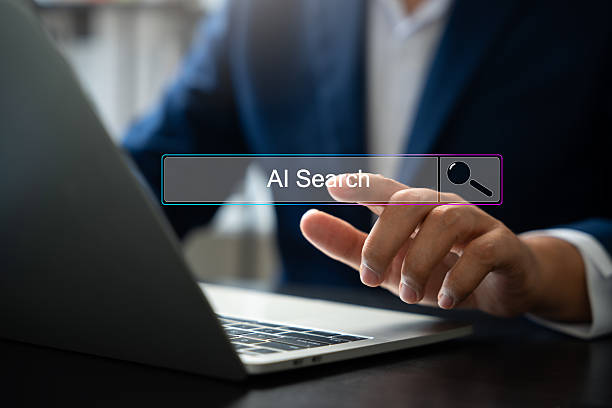
After implementing Off-page SEO strategies, the next crucial step is analyzing and measuring their performance.
Without accurate data and metrics, you cannot understand which of your efforts have been effective, which areas need improvement, and where your investment has been most fruitful.
Professional #off_page_seo tools like Moz, Ahrefs and SEMrush provide comprehensive and valuable information about your site’s backlink profile.
Metrics you should carefully monitor include Domain Authority (DA) or Domain Rating (DR) which are provided by Moz and Ahrefs respectively and indicate the overall strength of your domain, the total number of inbound links, the number of unique referring domains (which is highly important), and the quality of these domains (based on their spam score or authority).
A gradual and continuous increase in the number of quality and relevant linking domains is one of the most important indicators of your success in Off-page SEO. You should also ensure that links come from diverse and reputable sources, not from a single specific or low-quality source.
In addition, you should monitor your backlink growth rate to ensure the naturalness of the link-building process; sudden and unnatural link growth can be suspicious and harm your site.
Careful examination of Anchor Text is also crucial; diversity in anchor texts (using brand name, naked URL, secondary keywords, or generic phrases) and avoiding over-optimization of target keywords as anchor text helps prevent potential Google penalties.
Anchor text should be natural and relevant to the linked content.
In addition to specialized tools, you can also use Google Search Console to view inbound links identified by Google, check for potential link issues, and identify any suspicious activity.
Setting up a comprehensive #SEO_dashboard that includes all these metrics and reports allows you to regularly #review_performance, identify strengths and weaknesses, and adjust your Off-page SEO strategy based on real data and trends.
This analytical and data-driven approach is the foundation for continuous improvement and long-term success in Off-page SEO and helps you make better decisions for the future of your SEO campaigns.
Common Mistakes in Off-Page SEO and How to Avoid Them to Maintain Site Ranking

While Off-page SEO has immense potential to improve your site’s ranking in search results, unfortunately, common mistakes and improper approaches can lead to adverse outcomes, loss of ranking, and even #Google_penalties.
One of the biggest and most destructive mistakes is focusing solely on link quantity instead of quality. Buying many low-quality links, from spammy websites, or through Private Blog Networks (PBNs) which are often associated with #Black_Hat_SEO methods, is quickly detected by intelligent Google algorithms and can severely damage your ranking, to the extent that your site might be removed from search results.
Google seeks natural and valuable links, not links artificially created to manipulate rankings.
In fact, one poor-quality link can be more harmful than hundreds of good ones.
Another mistake is excessive use of a specific anchor text or “over-optimized link building.” Google seeks a natural link profile, and if a high percentage of your inbound links use an exact, perfectly optimized keyword as anchor text, this will be a red flag for the algorithms.
Diversity in anchor texts (using brand name, naked URL, secondary keywords, or generic related phrases) is essential for your link profile to appear natural.
Lack of diversity in linking sources is also a common error; reliance on only one or two sources or link types for all backlinks can be dangerous and appear unnatural to Google.
Ignoring “bad” or spam links can also harm your site. You should regularly review your backlink profile and disavow suspicious or spam links that you’ve unintentionally received (e.g., through comment spam or negative SEO attacks) using the Google Disavow Tool so Google ignores them and they don’t harm you.
Finally, rushing into link building and trying to achieve quick results, often leads to using unstable and risky tactics that drastically increase the risk of penalties.Off-page SEO is a marathon, not a sprint, and requires patience, a long-term strategy, and an ethical (White Hat SEO) approach. Avoiding these common mistakes helps maintain the health and strength of your link profile and ensures sustainable Off-page SEO success.
| Common Mistake | Description | Solution |
|---|---|---|
| Buying links or unnatural link exchange | Paying money for links, participating in link networks, or creating extensive link exchange networks that are prohibited by Google. | Focus on acquiring natural links earned through valuable content production, credible outreach, and digital public relations. |
| Getting links from irrelevant or spam sites | Acquiring links from sites with unrelated topics, low quality, or a history of spam and suspicion. These links can damage your domain’s credibility. |
Only pursue relevant, high-quality links from reputable sources. Quality is preferred over quantity, and always ensure topical relevance. |
| Overuse of one anchor text | All or a high percentage of links use a specific keyword as anchor text, which appears unnatural to Google and indicates manipulation. | Diversify anchor texts (use brand name, naked URL, generic terms, LSI keywords, and long, descriptive phrases). |
| Ignoring weak/harmful links | Not regularly reviewing the link profile and identifying harmful or suspicious links that are unintentionally pointing to your site. | Regularly review the link profile (with tools like Ahrefs) and use Google’s Disavow Tool to reject spammy and low-quality links. |
| Striving for quick and short-term results | Using risky tactics (Black Hat SEO) to quickly achieve high rankings, which often leads to heavy penalties and loss of credibility. | Patience and adoption of a long-term, ethical (White Hat SEO) strategy for Off-page SEO that focuses on value creation and genuine credibility. |
The Future of Off-Page SEO and Adapting to Search Engine Algorithm Changes
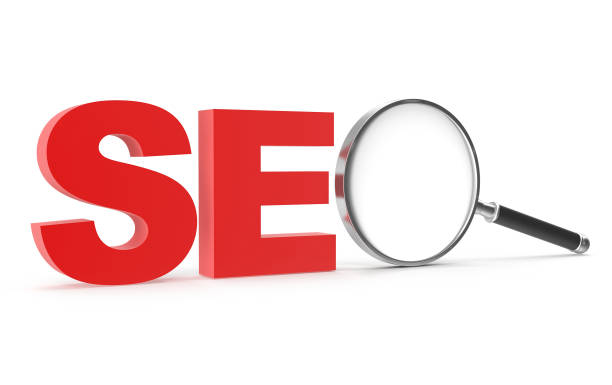
The world of Off-page SEO has never been static and is constantly changing and evolving.
With every #Google_algorithm update, some of which, like Penguin, directly impacted link building, new approaches to link building and website validation emerge.
What will become increasingly important in the future of Off-page SEO is a firm focus on “natural, value-driven, and contextual links.”
Google has become increasingly intelligent and can identify manipulated, low-quality, or unnatural links, reducing their value or even penalizing associated sites.
Therefore, strategies that focus on producing outstanding content with the aim of naturally attracting links from reputable and relevant sources will not only be more successful but will also yield sustainable results.
It’s no longer just “the more, the better,” but “the more natural and higher quality, the better.”
Furthermore, the role of artificial intelligence and machine learning in understanding the complexities of semantic relationships, user intent, and the true credibility of websites, is becoming more prominent than ever.
This means that merely a high number of links no longer guarantees a high ranking; instead, the credibility and topical relevance of linking sites, the overall quality of the backlink profile, and even the context of the link within the content, will become far more crucial.
Google seeks to understand whether a link was truly given by a human and due to the content’s value, usefulness, or authority.
#Sustainable and long-term SEO in Off-page SEO means investing in genuine digital public relations, meaningful participation in online communities, and creating unique, innovative, and comprehensive content that automatically attracts links and shares.
Sustainability in Off-page SEO means avoiding risky tactics and focusing on genuinely increasing your online credibility and authority over time.
By following SEO industry news and analyses, participating in conferences and webinars, and rapidly adapting to algorithm changes, you can ensure that your Off-page SEO strategy will remain effective in the long run and have greater resistance to ranking fluctuations, which is essential for the sustained success of any online business and helps you always stay at the top of search results.
Are you tired of your company website not meeting your expectations? With Rasawab, design a professional website that truly represents your business.
✅ Increase acquisition of new customers and sales leads
✅ Enhance your brand’s credibility and trust with your audience
⚡ Get a free website design consultation!
Content Strategies for Strengthening Off-Page SEO: Creating Linkable Content

Perhaps at first glance, Off-page SEO, which mainly deals with backlinks and off-site activities, and content production, which is categorized under on-page SEO, might seem like two separate areas. However, in reality, high-quality, engaging, and unique content is one of the strongest and most sustainable tools for strengthening your Off-page SEO. Content that naturally attracts links is known as a #linkable_asset.
This type of content must be so valuable, comprehensive, and informative that others will want to reference it, share it, and link to it.
Prime examples for #linkable_content include research statistics and original studies conducted by you, comprehensive and in-depth reports on the status of an industry or a specific topic, engaging and data-driven infographics that visualize complex information simply, free and useful online tools, comprehensive lists of resources or “complete guides” (like this article!), or even detailed surveys and case studies that provide unique results.
These contents act as reference sources and automatically create a desire for bloggers and media to link to them.
The goal is to create content that is recognized as a reference source in its field and automatically becomes “linkable” content.
To discover ideas for linkable content, think about what kind of content is lacking in your industry, which questions are not well answered, which data have not yet been collected and analyzed, or what new approach you can bring to an old topic? Producing #viral and entertaining content can also be unexpectedly beneficial for your Off-page SEO.
Content that evokes emotions, is humorous, or provides surprising and unique information has a much higher chance of wide sharing on social media and attracting natural links from bloggers and media.
For example, an interesting new statistical study on internet user habits or a comprehensive report on industry predictions for the coming year can quickly spread among professionals and earn valuable links.
Therefore, meticulous planning for producing #linkable and engaging content should be an inseparable part of your Off-page SEO strategy and make it a more natural, sustainable, and enjoyable process, ultimately leading to increased credibility and ranking for your site.
Integrating Off-Page SEO with Your Overall SEO Strategy for Maximum Impact and Sustainable Growth

To achieve the best and most sustainable results in search engines, Off-page SEO should never operate as a separate and distinct part from other website optimization activities, but rather it must be fully and purposefully integrated with your overall #comprehensive_SEO strategy.
The synergy between #on_page_SEO, #technical_SEO, and Off-page SEO is what truly empowers your website and prepares it for success in online competitions. A site with excellent content and flawless on-page optimization, without credible and high-quality external links that confirm its authority from the perspective of search engines, will never be able to reach the top rankings for competitive keywords and will get lost in the sea of information.
Similarly, having a large number of inbound links from reputable sites, if your site’s content is weak, has a poor user experience, or major technical issues exist in the site’s structure and indexing, cannot perform miracles, and the true value of these links will not be fully transferred.
For example, when you publish new content (which is part of on-page SEO and includes keyword research, meta tag optimization, and text quality), you should immediately have a well-defined plan for promoting it and attracting links (which is part of Off-page SEO).
This promotion can include active sharing on social media, outreach to influencers and websites to introduce your content, and even email marketing campaigns to inform your target audience.
Ensuring the technical health of the site (technical SEO) is also essential so that search engine crawlers can easily crawl and index your site and correctly transfer the value of external links to it.
Site loading speed, mobile responsiveness, appropriate URL structure, use of SSL certificates, and fixing crawl errors all indirectly affect how Google values external links.
Close coordination and collaboration between content, technical, and SEO teams are key to success in this process. A successful Off-page SEO strategy not only increases your ranking in search engines but also helps improve brand awareness, increase direct traffic (which is a sign of brand strength) and ultimately contributes to the sustainable growth of your business.
Therefore, view SEO as a single ecosystem where each component affects the other, and only with a comprehensive, coordinated, and long-term approach can you reach the top.
This is the true power of Off-page SEO alongside other optimization factors that leads to success in today’s digital world.
Frequently Asked Questions
| Question | Answer |
|---|---|
| What is Off-Page SEO? | Off-Page SEO refers to a set of activities and methods performed outside your website to improve its ranking in search engines, such as building backlinks. |
| Why is Off-Page SEO important for a website? | Off-Page SEO shows search engines that your website is credible, popular, and trustworthy, which helps increase domain authority and ranking. |
| What is the most important factor in Off-Page SEO? | Backlinks, or links that are given from other sites to your site, are the most important factor, especially if they come from reputable sites. |
| What are the characteristics of a quality backlink? | A quality backlink comes from reputable sites (with high authority), relevant to your site’s topic, and with appropriate (natural) anchor text. |
| Do social networks play a role in Off-Page SEO? | Yes, sharing content on social networks can help increase visibility and indirect traffic, and send positive social signals to search engines. |
| What is PBN and is it recommended? | PBN (Private Blog Network) is a network of private websites used to build backlinks to the main site. Google considers this method spam and its use is strongly discouraged and can lead to penalties. |
| How is Natural Link Building done? | By producing valuable and shareable content, establishing relationships with bloggers and influencers, and attracting media attention. |
| What is Anchor Text in a backlink? | It is the text within which the link is placed. Using diverse anchor texts relevant to the keyword appears more natural and helps with SEO. |
| What is the connection between Local SEO and Off-Page SEO? | Local SEO includes off-site activities like registering with Google My Business, local directories, and getting online reviews, which help businesses appear in local search results. |
| How can I check competitor backlinks? | You can analyze competitor backlink profiles using tools like Ahrefs, Semrush, or Moz to identify new link-building opportunities. |
And other services of Rasawab advertising agency in the field of advertising
Smart Social Media: An effective tool for online growth with the help of marketing automation.
Smart Direct Marketing: A fast and efficient solution for customer acquisition with a focus on intelligent data analysis.
Smart Social Media: Professional optimization for digital branding using marketing automation.
Smart Digital Branding: An effective tool for digital branding with the help of intelligent data analysis.
Smart Advertorial (Native Advertising): A combination of creativity and technology to increase click-through rates using real data.
And over a hundred other services in the field of internet advertising, advertising consultation, and organizational solutions
Internet Advertising | Advertising Strategy | Advertorial
Resources
Off-Page SEO Guide in Digikala Magazine
Off-Page SEO Strategies in Zoomit
Comprehensive Off-Page SEO in Virgul
What is Off-Page SEO? (Pars Pack Article)
? Looking for growth and visibility in the online world? Rasawab Afarin Digital Marketing Agency, specializing in custom website design, SEO, and advertising campaign management, paves the way for your business success.
📍 Tehran, Mirdamad Street, next to Bank Markazi, Kazeroon Janoubi Alley, Ramin Alley, No. 6


